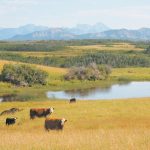Farmers have the honour of being a textbook example of a group of people who inhabit a crucial but seldom discussed (by the public) economic concept: Externalities. It’s something that could bring or cost farmers lots in the future. It’s the concept of costs or benefits of something being unrecognized in the price or cost […] Read more
Beef cattle
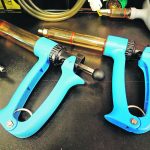
Vaccine protocols keep herd healthy
Vaccines are among the most effective disease management tools producers have, as long as they are used correctly
Cattle producers and veterinarians should develop vaccine protocols specific to their operations to manage disease risk, says Dr. Joyce Van Donkersgoed. The beef cattle veterinarian from southern Alberta said vaccines are among the most effective disease management tools producers have, as long as they are used correctly. “Vaccination is only one aspect of disease control,” […] Read more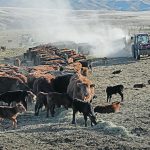
Greasing the wheels of carbon science for feeding
Researchers are looking at adding some oils to alfalfa genetics, bringing down methane releases in cattle
Scientists with Agriculture Canada conducted an experiment, where they added sunflower oil to the diets of Angus heifers. They wanted to know if the sunflower oil would reduce methane emissions from the heifers and it turned out that the answer was “yes”. A small amount of sunflower oil reduced methane by 15 percent. “We concluded […] Read more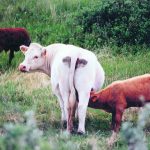
Vitaferst a newborn calf supplement with a twist
This year, an oral supplement called Vitaferst, designed for newborn ruminants (calves, lambs and goat kids) was launched. Apart from selenium and the fat-soluble vitamins A, D, and E, which are normally injected at birth requiring two separate needles, it contains one other mineral and one other vitamin. The product is formulated to have similar […] Read more
Canfax report
This cattle market information is selected from the weekly report from Canfax, a division of the Canadian Cattlemen’s Association. More market information, analysis and statistics are available by becoming a Canfax subscriber by calling 403-275-5110 or at www.canfax.ca. U.S. offers premiums The Canadian fed market has been disappointing relative to the U.S. Alberta and Ontario […] Read more
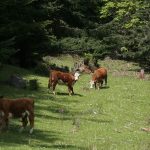
B.C. producers face unusual weather
Producers were keeping an eye on unusual weather conditions this fall that have affected much of British Columbia less than a year after some of the worst flooding in provincial history. Warmer weather has delayed the return of cattle to some ranches, said Kevin Boon, general manager of the B.C. Cattlemen’s Association. “Out here, we […] Read more
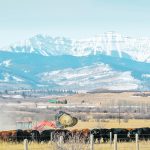
Funding formula for Alberta cattle association still outstanding
Alberta Beef Producers is still in discussions about its financial contribution to the Canadian Cattle Association, despite having to provide slightly fewer checkoff refunds this year to the province’s ranchers. Talks with the CCA include potentially moving toward a different funding model for the national organization “to help us through a difficult time right now […] Read more
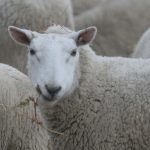
N.Z. to put price on livestock emissions
WELLINGTON, N.Z. (Reuters) — The New Zealand government said it will price agricultural long-lived gases and biogenic methane that mainly comes from cow and sheep burps, in a plan that concerns farm groups. The government recently released its proposed plan on agricultural emissions pricing, which when introduced in 2025 will make New Zealand, a large […] Read more
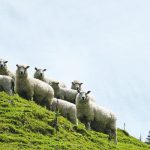
Probiotics may curb livestock methane
PALMERSTON NORTH, N.Z. (Reuters) — More than a dozen calves wait at a research farm in New Zealand to be fed Kowbucha, a probiotic that studies show reduces methane emissions. The Kowbucha powder is blended into a milk-like drink fed to the calves at the Massey University farm in Palmerston North. The regular feeds are […] Read more
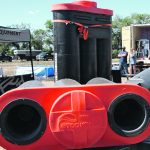
Mother Earth offers worry-free winter watering
The differential between ambient temperature and groundwater in winter helps keep water from freezing in the pasture
SASKATOON — Ranchers who winter graze agree that getting water to the cattle in -30 C weather can just about become a full-time job. Some remedies work pretty well, others not so well. Ice at the waterer can be chopped and removed, but a frozen subterranean water line can ruin your winter plans. Meanwhile, there’s […] Read more
